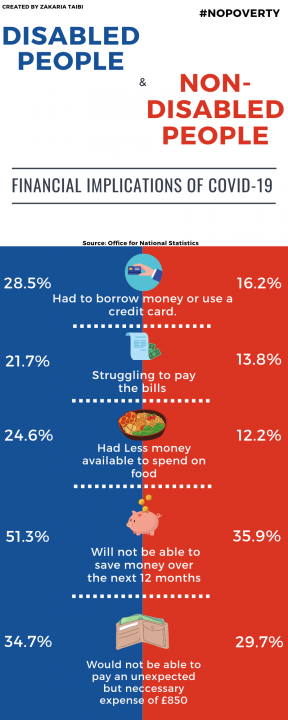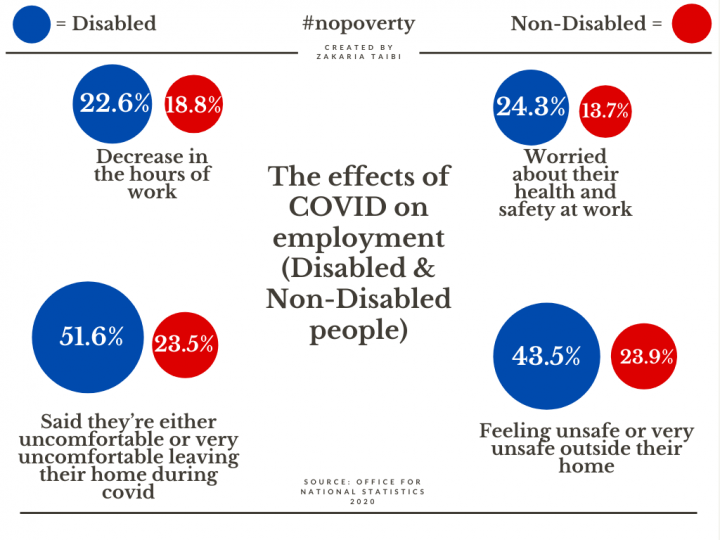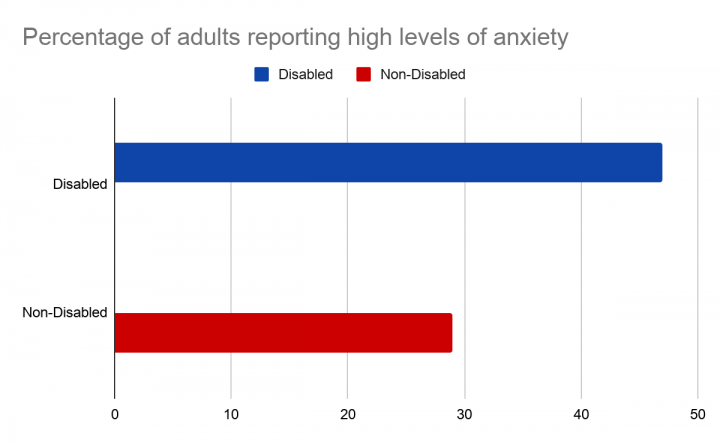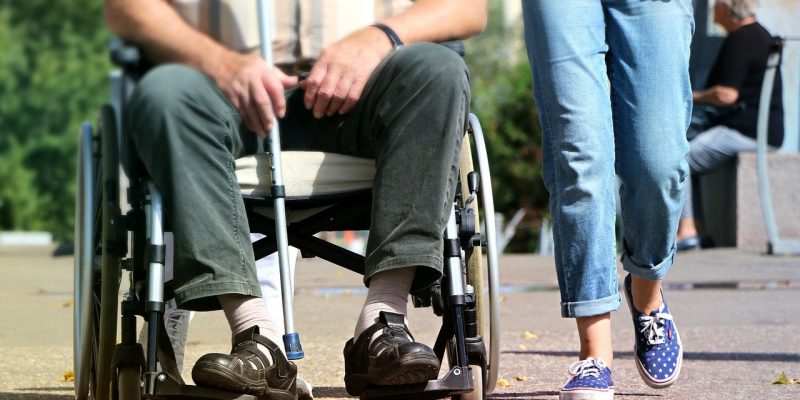Covid-19 has not only affected millions of people’s health worldwide but it has also affected their wealth too.
A particular group who are feeling the financial impact are disabled people.
In the UK, the latest figures released by the Office for National Statistics show that when compared to non-disabled people, disabled people during the pandemic are more likely to borrow money or use credit cards, struggle to pay bills and are less likely to have money to spend on food.
Alison Kerry, the head of communications at the charity ‘Scope’ that campaigns for equality for disabled people in England and Wales, believes that the government should be doing more to help disabled people during this difficult period.
“Nowhere near enough has been done by the government to protect and support disabled people through this economic crisis and we urgently need a package of emergency support for disabled people, who are bearing the brunt of the pandemic.
“Life costs an average of £583 MORE per month for disabled people and their families, spending more on essential goods and services like; heating, insurance, equipment and therapies. These extra costs often mean disabled people have less money in their pocket than non-disabled people, or simply go without. The result is that disabled people are more likely to have a lower standard of living, even when they earn the same.”

Employment
Statistics show that 53.5% out of the 7.7 million disabled people above the age of 16 in the UK are in employment.
An ONS survey also found that 51.6% said they feel uncomfortable or very uncomfortable leaving their home during COVID-19 in comparison to 23.7% for those who are not disabled.
While 43.5% said they felt unsafe or very unsafe outside their home in comparison to 23.9% of those not disabled.

This has potential to have a major impact on disabled people’s wealth and could result in fewer options when sourcing living and care costs.
Having less access to money has also been known to be detrimental for people’s mental health.
The uncertainty, not only due to the coronavirus, but also due to the lack of spending power, can cause great anxiety for many people.
This is reflected in ONS’ data which showed that 47% of disabled adults reported high levels of anxiety compared to 29% for those who are not disabled.

Whether the government will provide extra support still remains unconfirmed. Plans to cut the £20 a week universal credit uplift that was introduced in April 2020 has sparked backlash and frustration from many organisations whom support and help those in need.


 Rent strikes held by students unable to return to accommodation
Rent strikes held by students unable to return to accommodation